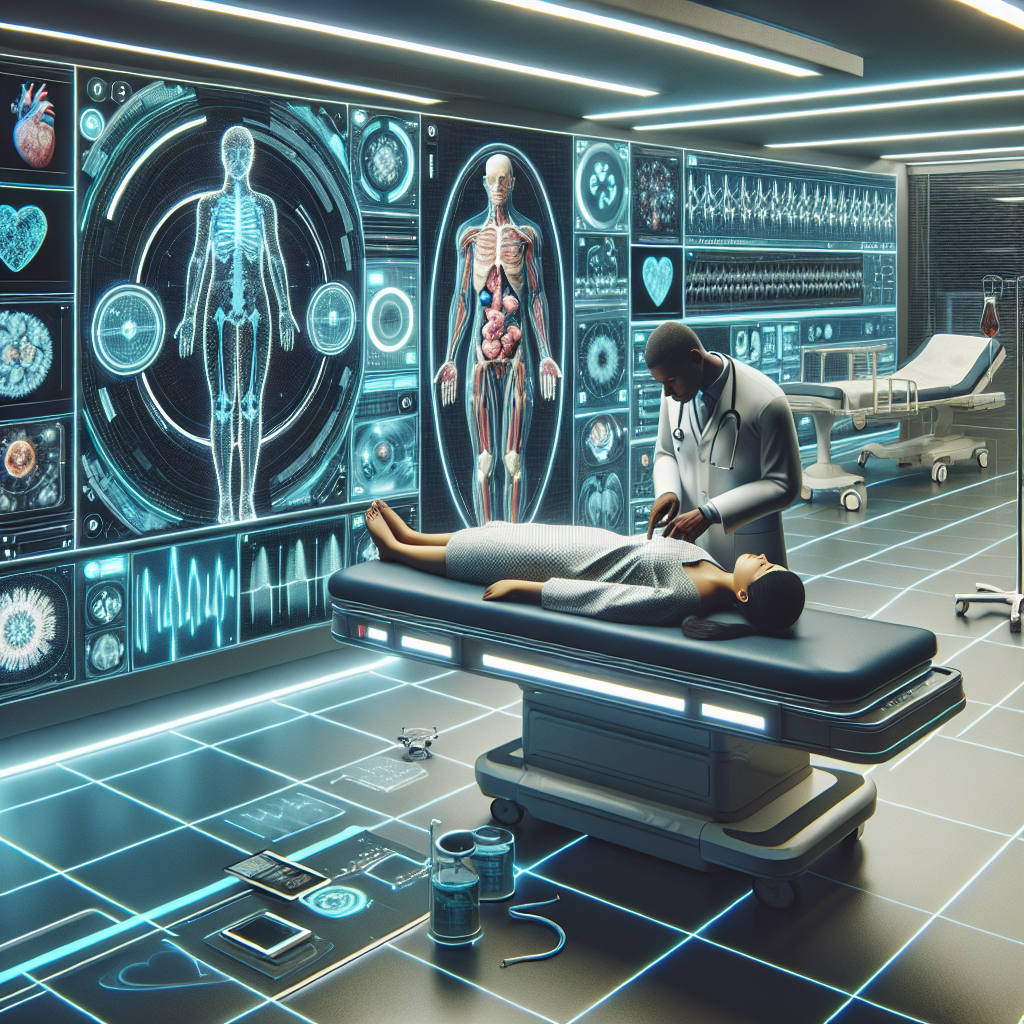AGI in Healthcare: How Artificial Intelligence is Improving Patient Care
Artificial General Intelligence (AGI) is a rapidly evolving field that has the potential to revolutionize healthcare by improving patient care and outcomes. AGI refers to machines that possess the ability to learn, understand, and adapt to new situations in a way that is similar to human intelligence. In the healthcare industry, AGI is being used to enhance diagnostic accuracy, personalize treatment plans, optimize workflows, and improve overall patient experience.
One of the key areas where AGI is making a significant impact is in diagnostic imaging. AGI-powered algorithms are able to analyze medical images such as X-rays, MRIs, and CT scans with a level of accuracy and speed that surpasses human capabilities. This allows for earlier detection of diseases, more precise diagnoses, and ultimately better treatment outcomes for patients. In a study published in the journal Nature Medicine, researchers found that an AGI system was able to accurately detect breast cancer in mammograms with a rate of 94.5%, compared to 88.0% for human radiologists.
Another way AGI is transforming healthcare is through the development of personalized treatment plans. By analyzing vast amounts of patient data, including genetic information, medical history, and lifestyle factors, AGI can help healthcare providers tailor treatment options to individual patients. This not only improves the effectiveness of treatments but also reduces the risk of adverse reactions and side effects.
AGI is also being used to optimize healthcare workflows and improve operational efficiency. By automating routine tasks such as appointment scheduling, billing, and medical record management, AGI can free up healthcare providers to focus on more complex and critical aspects of patient care. This leads to faster turnaround times, reduced administrative costs, and a more seamless patient experience.
In addition to improving patient care, AGI has the potential to address some of the biggest challenges facing the healthcare industry, such as physician shortages, rising healthcare costs, and disparities in access to care. By leveraging AGI-powered solutions, healthcare organizations can streamline processes, increase productivity, and deliver high-quality care to a larger population of patients.
Despite the numerous benefits of AGI in healthcare, there are also concerns about its ethical implications, data privacy issues, and potential biases in algorithms. As AGI becomes more integrated into healthcare systems, it is important for policymakers, healthcare providers, and technology developers to work together to ensure that AGI is used responsibly and ethically.
Overall, AGI has the potential to revolutionize healthcare by improving patient care, enhancing diagnostic accuracy, personalizing treatment plans, and optimizing operational efficiency. As the field of AGI continues to advance, it is crucial for healthcare organizations to embrace these technologies in order to provide the best possible care for patients.
FAQs
Q: What is Artificial General Intelligence (AGI) and how is it different from Artificial Intelligence (AI)?
A: AGI refers to machines that possess the ability to learn, understand, and adapt to new situations in a way that is similar to human intelligence. AI, on the other hand, refers to machines that are capable of performing specific tasks or solving specific problems without human intervention. AGI is considered a more advanced form of AI that can mimic human cognitive abilities across a wide range of tasks.
Q: How is AGI being used in healthcare?
A: AGI is being used in healthcare to improve diagnostic accuracy, personalize treatment plans, optimize workflows, and enhance overall patient care. AGI-powered algorithms are able to analyze medical images, such as X-rays and MRIs, with a level of accuracy and speed that surpasses human capabilities. AGI can also analyze patient data to help healthcare providers tailor treatment options to individual patients and automate routine tasks to improve operational efficiency.
Q: What are the benefits of AGI in healthcare?
A: Some of the benefits of AGI in healthcare include improved diagnostic accuracy, personalized treatment plans, optimized workflows, and enhanced patient care. AGI can help healthcare providers detect diseases earlier, make more precise diagnoses, and deliver more effective treatments. AGI can also streamline processes, increase productivity, and reduce administrative costs for healthcare organizations.
Q: What are the challenges of implementing AGI in healthcare?
A: Some of the challenges of implementing AGI in healthcare include ethical implications, data privacy issues, and potential biases in algorithms. As AGI becomes more integrated into healthcare systems, it is important for policymakers, healthcare providers, and technology developers to address these concerns and ensure that AGI is used responsibly and ethically.
Q: How can healthcare organizations prepare for the integration of AGI?
A: Healthcare organizations can prepare for the integration of AGI by investing in training and education for healthcare providers, developing clear guidelines and protocols for the use of AGI-powered technologies, and implementing robust data security measures to protect patient information. By taking these steps, healthcare organizations can ensure that they are well-equipped to leverage the benefits of AGI in improving patient care and outcomes.

